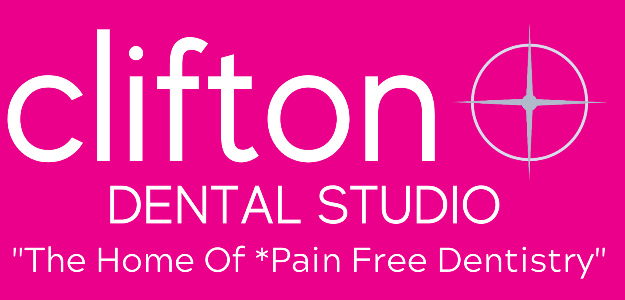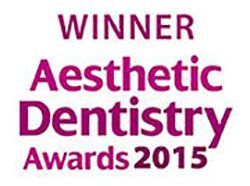Posts Tagged ‘root canal treatment’
Bath Dentist Says Root Canal Treatment Can Still Lead To Decay
A root canal treatment is a very complicated treatment during which a badly decayed tooth has its nerve removed and it is cleaned from within after which it is permanently sealed. A tooth that has undergone this treatment usually also gets a cap placed on it in order to protect it from further damage. This is an expensive and painful procedure because it involves touching a nerve. Most people have the wrong impression regarding a root canal treatment. They believe that once a tooth has this treatment it cannot get decayed. According to a dentist in Bath, this wrong notion can cause people to neglect taking care of their teeth. This can lead to further dental problems with additional expenditure and discomfort. A tooth that has been treated in this way is very susceptible to fracture since it has a tendency to become brittle over time. This tooth has had its blood supply cut off, which leaves it entirely without protection. A person who has had this treatment needs to take extra special care of his or her teeth because ironically, there will be no pain to indicate that the tooth has decayed further. People who do not take care of their teeth properly due to ignorance about these facts can end up having the tooth extracted. It is thus very important to get regular dental checkups, with X-rays taken of the tooth to check for any hidden decay. Your local dentist will be able to advise you on the best preventive treatment possible.Swindon dentist prevents dental extraction with expert treatment
Dental extraction is the process of having one or more teeth completely removed by a dentist. This usually takes place either during one appointment or over a number of sessions depending on the number of teeth that need to be taken out. There are many reasons why teeth may need to be removed but some of the most common are: severe gum disease or tooth decay has made it too painful and dangerous to have the tooth remain in the mouth, a tooth that is broken beyond repair, teeth that are too overcrowded and need some space to align and due to wisdom teeth issues. There are alternatives to extraction in some cases such as antibiotics and painkillers but these are more often than not simply short-term solutions and the wider issue will remain. For overcrowding issues it is possible to correct the problem with braces and by moving teeth in different ways. An orthodontist would need to see if this was possible without an extraction. If a tooth is infected it may be possible to save it with a root canal operation instead of an extraction, but not in all cases. Again, a Swindon dentist would need to make an assessment. Before you have an extraction it is important that you prepare in the right way. This may mean keeping your teeth cleaner than usual and not smoking in the days and weeks before the operation. Similar care will be needed after the operation to ensure that you do not suffer from an infection. Obviously the procedure will take place under an anaesthetic but after this wears off you may experience some pain. Your dentist will be able to recommend something to help you with this and will tell you what other precautions to take.Pulp Capping Is a Good Option to Root Canal Treatment, Says Dentist in Bristol
A root canal treatment is probably the most dreaded dental procedure because of the amount of pain it generates. It also requires a patient to spend a lot of time in the dentist’s chair and it is also quite expensive. There is no doubt that a root canal treatment is sometimes necessary when the tooth is very badly decayed and a simple filling will not do. However, according to a dentist in Bristol, one does not necessarily need a root canal treatment in all cases of severe tooth decay. What this dentist offers is a new treatment called pulp capping. In very simple terms, this procedure requires the dentist to go quite close to the nerve while removing decay, but not going all the way. The dentist then applies medicated cement into the cavity in order to help the tooth heal on its own. After a while, the tooth would have built up a wall of structure over the pulp, which then allows the dentist to open up the filling and remove any remaining decayed part. The dentist can then fill up the cavity and cover the tooth if necessary. The benefits of pulp capping are very obvious. It is a far less expensive procedure than a root canal treatment and it also helps to conserve the tooth. This method also helps to keep the tooth alive for as long as possible and is therefore becoming increasingly popular. Always make it a point to ask for it in case your tooth is decayed very badly.Insist on calcium hydroxide for root canal, says dentist in Bristol
A root canal treatment is a very complicated procedure whereby a badly infected tooth is cleaned from the inside and cemented shut after that. It is a very uncomfortable procedure and it is therefore greatly feared. There is a lot of controversy surrounding root canal treatments because dentists are not in agreement regarding the use of calcium hydroxide for root canal. Many dentists feel that it has absolutely no bearing on how the tooth will react after the treatment. However, a dentist in Bristol offers calcium hydroxide for root canal treatment because it is believed to help the tooth heal itself from within. This substance is believed to reduce inflammation from within the tooth, and this in turn helps the tooth get better soon. It eventually gets absorbed into the body. This is in keeping with a holistic approach to healing, whereby the body is encouraged to repair itself. The doctor gives the body the required raw materials towards this end. Calcium hydroxide is one such substance and more than a few dentists are beginning to use it in their treatments. As a matter of fact, patients are beginning to demand this treatment since they believe that it is very effective. Therefore, if you are due to undergo a root canal treatment for a severely decayed tooth, you should first talk to your dentist about whether calcium hydroxide will be used in the substance that your tooth will be filled with. You have every right to only take that medical treatment that you feel confident about.Weston-super-Mare dentist beats infection using root canal treatment
A root canal treatment is a dental treatment, also known as endodontics, designed to treat infection and decay that occurs at the centre of the tooth affecting the nerve and the pulp. The tooth structure is in three distinct parts. On the outside is the enamel which is the hard coating. Underneath that is the dentin, a softer more bone-like material which surrounds the pulp of the tooth. The root canal is the path of pulp that runs down through the gum and into the jawbone. It is this part of the tooth that keeps it anchored in place and also surrounds the dental nerve and blood vessels. In some cases there is more than one root canal per tooth. If this pulp area becomes infected either as the result of bacteria penetrating the tooth due to decay or some kind of structural damage, the root canal can become infected. The infection then attacks the nerve and blood vessels causing an abscess or at worst, tooth loss. This infection will also be very painful and can easily spread to other teeth and the gums if not treated quickly. A root canal treatment from a Weston-super-Mare dentist is designed to save the tooth and stop the infection spreading to other areas. It has quite a fearsome reputation but will actually bring an end to the pain rather than cause any more. The dentist drills down into the root canal and removes any infected material. They may then use antibiotics to sterilise the area before filling the cavity and possibly applying a dental crown to strengthen the tooth. If performed well, a root canal treatment has no reason to be painful. It will take place under a local anaesthetic and will hopefully bring an end to a painful and potentially threatening infection. If you are experiencing a pain in any of your teeth and suspect infection, early treatment is always the best option so make an appointment to see your dentist.Relief from dental pain with treatment from Chepstow dentist
 Dental pain, often commonly known as toothache, can be extremely unpleasant and is usually an indicator of the exact level of decay affecting the tooth. The pain occurs because decay has worn away the protective layer of enamel around the tooth. This exposes the more sensitive dentine and dental nerve located at the centre of the tooth. A breach in the enamel also allows extremes of hot and cold to penetrate to the nerve of the tooth, creating the sensation of sensitive teeth when eating.
There are different kinds of pain commonly experienced that are usually indicative of certain forms of decay. A sharp pain set off by hot or cold food indicates an early sign of decay as a heat stimulus is sent to the nerve through the dentine. The sharp pain will usually subside after a few seconds to a minute. A dull pain starting without any stimulus is a more serious concern and may signal damage to the living cells of the nerve and decaying pulp tissue. For both forms of pain it is recommended that you see a Chepstow dentist as soon as possible as he may need to fill any dental cavities or in serious cases remove infected material from the tooth via a root canal treatment.
Although it is possible to gain relief from the pain of toothache using over-the-counter and prescription painkillers, this will not address the root of the problem. Dental decay will get steadily worse unless treated correctly by a trained dentist. It is also important to remember that even if dental pain appears to have stopped it is still necessary to see a dentist. This is because some infections actually kill off the sensitive dental nerve, leaving the tooth without any sensation but still infected. The infection is then capable of spreading to other teeth in the mouth and even the bloodstream.
Dental pain is never a pleasant experience but it is important to remember that it can be treated and prevented by seeking the necessary treatment from a dentist as soon as possible.
Dental pain, often commonly known as toothache, can be extremely unpleasant and is usually an indicator of the exact level of decay affecting the tooth. The pain occurs because decay has worn away the protective layer of enamel around the tooth. This exposes the more sensitive dentine and dental nerve located at the centre of the tooth. A breach in the enamel also allows extremes of hot and cold to penetrate to the nerve of the tooth, creating the sensation of sensitive teeth when eating.
There are different kinds of pain commonly experienced that are usually indicative of certain forms of decay. A sharp pain set off by hot or cold food indicates an early sign of decay as a heat stimulus is sent to the nerve through the dentine. The sharp pain will usually subside after a few seconds to a minute. A dull pain starting without any stimulus is a more serious concern and may signal damage to the living cells of the nerve and decaying pulp tissue. For both forms of pain it is recommended that you see a Chepstow dentist as soon as possible as he may need to fill any dental cavities or in serious cases remove infected material from the tooth via a root canal treatment.
Although it is possible to gain relief from the pain of toothache using over-the-counter and prescription painkillers, this will not address the root of the problem. Dental decay will get steadily worse unless treated correctly by a trained dentist. It is also important to remember that even if dental pain appears to have stopped it is still necessary to see a dentist. This is because some infections actually kill off the sensitive dental nerve, leaving the tooth without any sensation but still infected. The infection is then capable of spreading to other teeth in the mouth and even the bloodstream.
Dental pain is never a pleasant experience but it is important to remember that it can be treated and prevented by seeking the necessary treatment from a dentist as soon as possible.
Prevent dental decay with oral hygiene advice from Swindon dentist
 When it comes to oral hygiene the old maxim that prevention is better than cure is never more prevalent. Maintaining a good standard of oral hygiene is completely pain-free and takes as little as a combined 10 minutes a day. When you compare this to just some of the alternatives of ignoring hygiene it becomes quite clear that this small sacrifice is worth making.
When it comes to oral hygiene the old maxim that prevention is better than cure is never more prevalent. Maintaining a good standard of oral hygiene is completely pain-free and takes as little as a combined 10 minutes a day. When you compare this to just some of the alternatives of ignoring hygiene it becomes quite clear that this small sacrifice is worth making.
- 1
- 2











